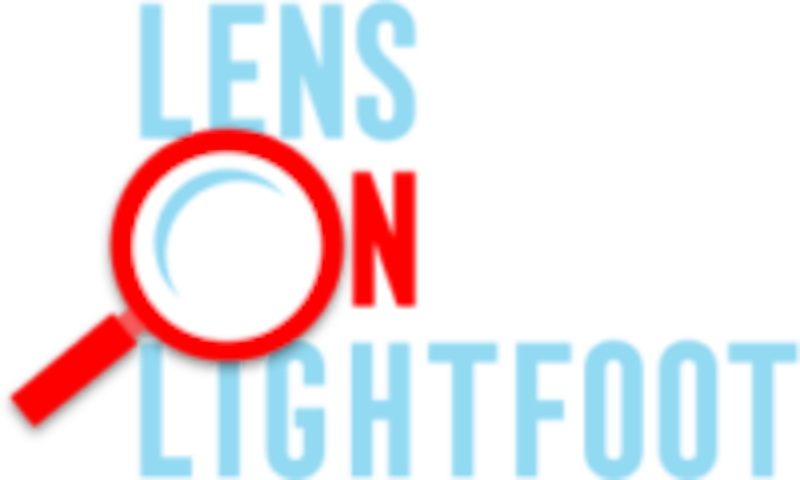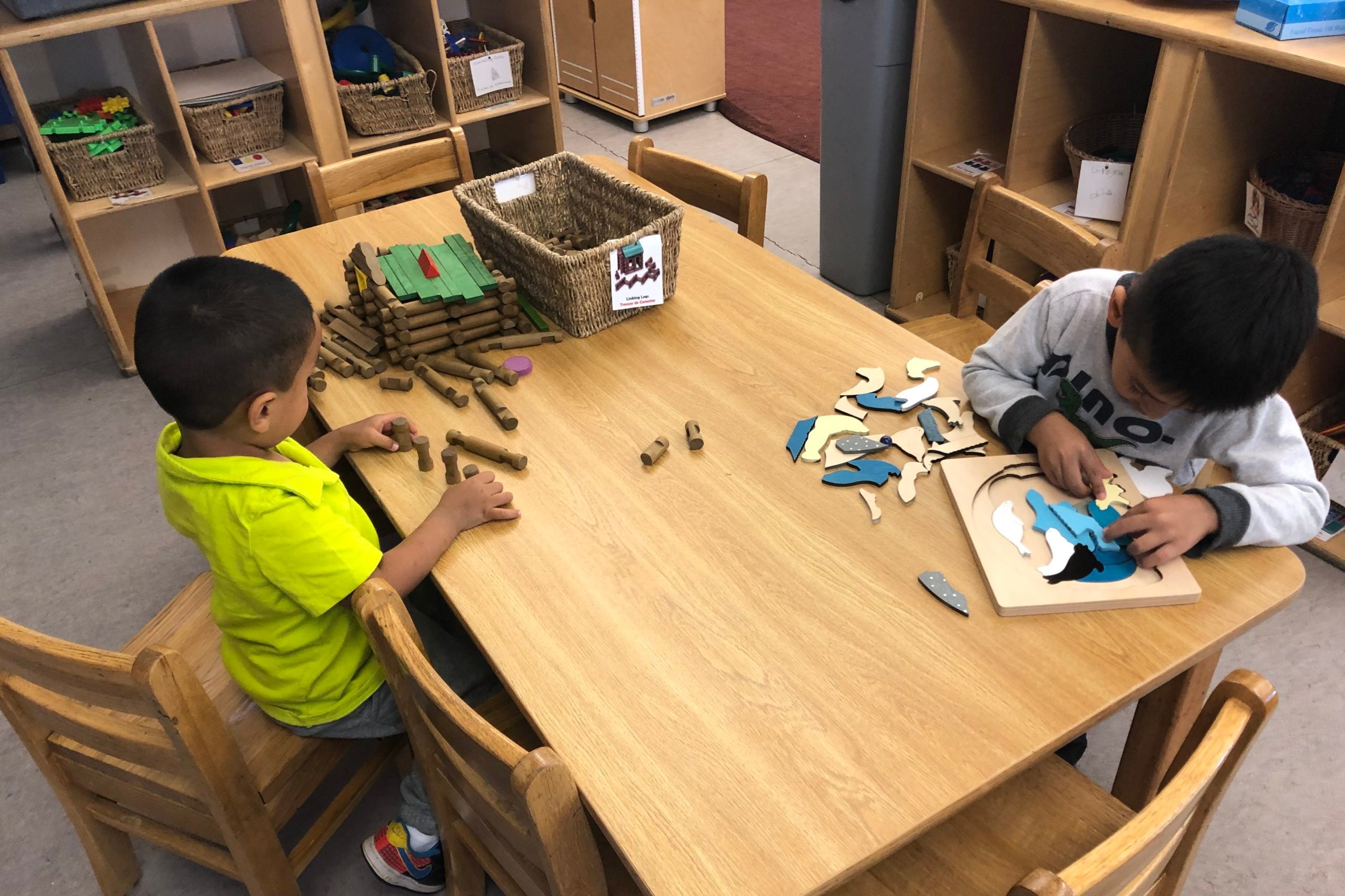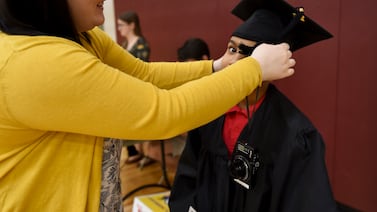This story is part of the Lens on Lightfoot series, a collaboration of seven Chicago newsrooms examining the first year of Mayor Lori Lightfoot’s administration. Partners are Chalkbeat Chicago, the Better Government Association, Block Club Chicago, The Chicago Reporter, The Daily Line, La Raza and The TRiiBE. It is managed by the Institute for Nonprofit News.
Interrupted partly by the battle against COVID-19, Chicago will slow the pace of its free preschool expansion, spokespeople for the mayor’s office and Chicago Public Schools confirm.
But Mayor Lori Lightfoot is not abandoning her predecessor Rahm Emanuel’s plan to ultimately offer free preschool to every 4-year-old. “We are on track for full universal pre-K implementation by 2022,” school district spokeswoman Emily Bolton said.
Chicago Public Schools said it will spend $18 million to add new classrooms next year — 44 more across 27 schools — but that is fewer than what the city’s original plans envisioned and what leaders had forecast.
The investment could add 900 preschoolers at most, far short of the 5,000 new students anticipated this year across public schools and community centers, according to the city’s universal pre-kindergarten road map. It’s not clear how many seats community centers will add in the coming year: It’s still early to tell how the city’s most recent grant competition has changed the landscape, since funding extensions run through the end of June.
Parents now face a delayed preschool application, and questions about shifting rules for half-day and full-day programs, what age children can enroll, and their odds of getting into programs. The city does not guarantee preschool admissions at neighborhood schools.

“Before (the coronavirus pandemic), I was worried, would my daughter even get in? Would she get into a half-day program or a full-day program?,” said Danielle Antosz, a mother of two who lives in Rogers Park. “Now I don’t know that they are going to send kids back in the fall.”
Families have taken to Facebook groups for information, as they also weigh whether schools will reopen in the fall for in-person learning and what safety and sanitation precautions the school district will put in place to minimize the spread of the coronavirus.
And they share worries. Try telling a group of 3- and 4-year-olds to practice social distancing or avoid touching each other, said Jenny Ludwig, another parent of two. “For a lot of preschoolers, it’s their first time in a classroom, and that feels to me like an extra challenge because they are smaller and not socialized yet,” she said.
So far, Lightfoot has said she aims to reopen pre-K-12 schools in fall, and that the city was looking at several different options for doing so safely, including rotating days. The state’s school superintendent has said to prepare for intermittent closures until there’s a vaccine.
Schools chief Janice Jackson has said that Chicago will follow the advice of health officials but that she hopes that schools will “open on time and at full capacity.”
Preschool plans disrupted
The 44 new classrooms will go to 27 schools, including seven that are getting full-day preschool classrooms for the first time: Hampton Fine & Performing Arts School in Ashburn, Lyon Elementary in Belmont Cragin, Skinner West in the West Loop, South Loop Elementary, Sawyer Elementary in Gage Park, Suder Montessori on the Near West Side, and Wildwood Elementary in Edgebrook.
The list of schools, which spans the city and includes wealthy areas near downtown and on the far Northwest Side, suggests the school district did not employ the same neighborhood-by-neighborhood expansion strategy as in the past. The list also includes two magnet schools.
Families at Hampton have long clamored for a pre-kindergarten classroom, Principal Zaneta Abdul-Ahad said. About half of the school’s population is black and the other half is Latino, with a sizable contingent of English learners and several classrooms for students with autism and other special needs. More than 90% of Hampton’s 480 students qualify for subsidized meals, a measure of poverty.
“We’ve been hearing from families about pre-K for years,” Abdul-Ahad said.
The school offered a half-day early childhood program. But amid lackluster participation, Abdul-Ahad made the tough decision in 2013 to close it as she juggled competing needs, such as addressing large class sizes in some grades. Today, she calls that decision “a rookie mistake.”
More recently, as awareness grew of the importance of early learning, parents pushed for launching a full-day program. Starting in fall, Hampton will have two full-day classes.
To make up for its scaled-back plans next school year, Bolton, the spokeswoman for Chicago Public Schools, said that the district will double up on its expansion in the fall of 2021 and that the more than 50 classrooms delayed this year will open then.
In all, the city projects it needs 370 more classrooms, she said. It’s not certain which neighborhoods will get those added preschool seats.
Where to put those classrooms and how many each neighborhood needs has been an ongoing question in Chicago’s early education community. In the city, preschool services are split between the public school district and a city department that oversees programs for families and handles the bulk of the grantmaking for community providers and nonprofits.
The split roles have complicated the universal pre-K rollout.
The district recently announced it has hired a new early education chief, Bryan Stokes, formerly of Illinois Action for Children and the governor’s office, to replace the former chief, Michael Abello, who departed at the end of 2019. Stokes is supposed to start this month.
Mila Koumpilova contributed reporting.






